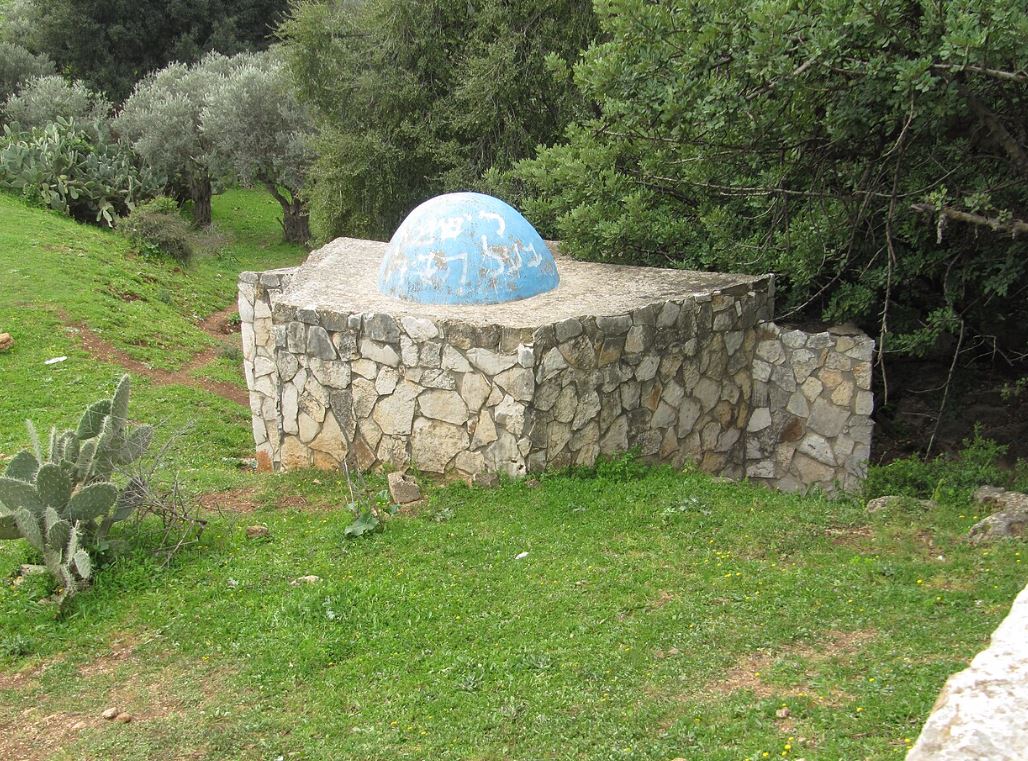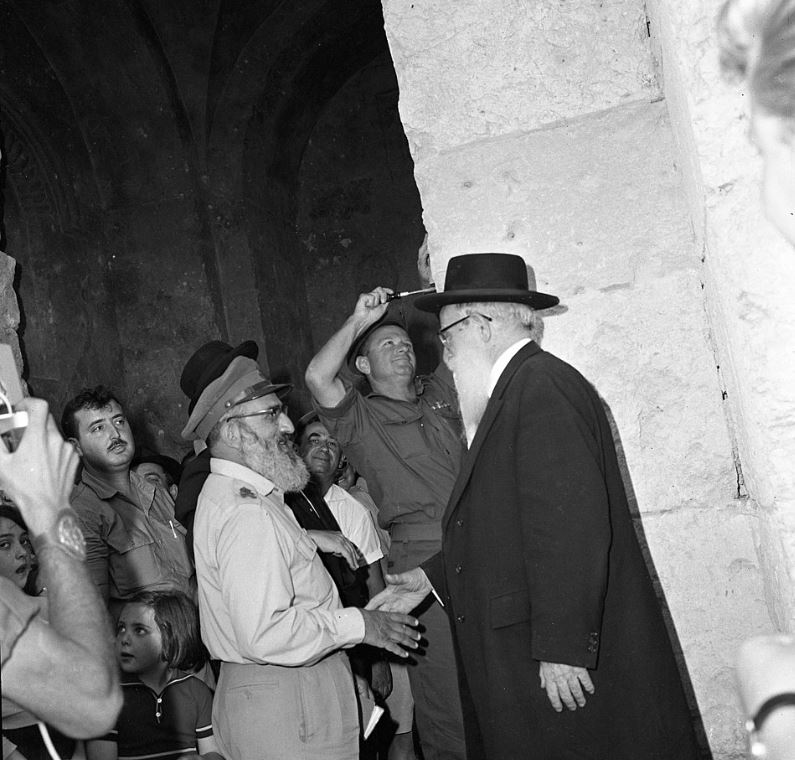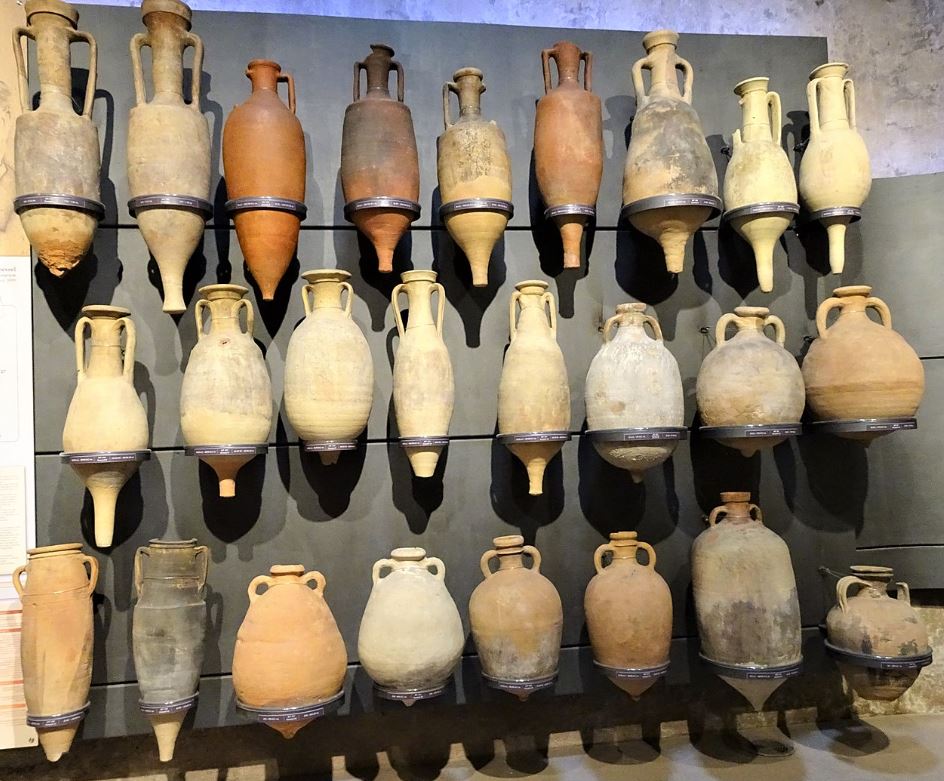Nobody likes paying taxes. Tax collectors, from the Bible until the IRS have always been reviled and Roman ones were particularly hated (see here). But while death and taxes are certainties, some taxes change with the times. What is the tax discussed here in Bava Batra?
“There was a certain coronation tax (demei kelila) that was placed by the royal house on the city councilmen [a’abulei] and on the prominent citizens [ve’a’isterugei].” (Bava Batra 143a)
The word kelila כלילא appears in numerous places in Rabbinic literature. It means a crown or a wreath but don’t only think of royalty, there are other types of crowns. For example, when Herod wishes to torment the Sage Bava ben Buta he places a crown of porcupine thorns over his eyes, a כלילא דיילי (Bava Batra 4a) When the Gemara tells of Rabbi Yochanan’s beauty, the description includes a crown of roses:
“One who wishes to see the beauty of Rabbi Yoḥanan should bring a silver goblet from the smithy and fill it with red pomegranate seeds and place a diadem of red roses כלילא דוורדא upon the lip of the goblet, and position it between the sunlight and shade.” (Bava Metzia 84a)
Crowns were also worn by brides and grooms (see here). In our story in Bava Batra the crown is somehow connected to a tax. This same meaning occurs in a story earlier in our masechet where Rabbi Judah the Prince exempts the rabbis from paying taxes and shows that all bad things happen because of the ignoramuses; without them we would not have unfair tax burdens:
“Rabbi Judah the Prince says: Suffering comes to the world only due to ignoramuses. This is like the incident of the crown tax [kelila] that was imposed on the residents of the city of Tiberias.” (Bava Batra 8a)
Before we explain what this tax is, let’s take a look at the two other strange words in our Gemara: abulei and isterugei. These are clearly not Hebrew words, rather they derive from Greek or Latin. The Rashbam translates bulei as wealthy. He has support from the Gemara in Gittin that explains the etymology of the financial term prosbul as a measure to benefit the rich and the poor, the rich being the bulei:
“What is the meaning of the word prosbol? Rav Ḥisda said: An ordinance [pros] of bulei and butei. Bulei, these are the wealthy, as it is written: “And I will break the pride of your power” (Leviticus 26:19), and Rav Yosef taught with regard to this verse: These are the bula’ot, the wealthy people, of Judea.” (Gittin 37a)
Is this etymology correct? The bulei probably were rich but the name also means something else. In a Greek city, the boule was the council of citizens. They would sit in a bouleuterion, a special chamber, where they would discuss the laws of the city. Prominent citizens are often also wealthy ones, so boule can mean rich and significant people, who were responsible to ensure that taxes were paid.
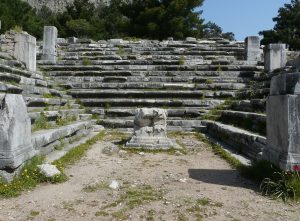
Bouleuterion in the Greek city of Priene
Zigomar, CC BY-SA 3.0 <https://creativecommons.org/licenses/by-sa/3.0>, via Wikimedia Commons
Isterugei is explained by Rashbam, based on the Targum in Samuel and Kings, as either prefects/governors or officials in a military sense. It also seems to be a prominent position in the city. In ancient Greece the strategos was a general, later in the Roman world it came to mean a military governor, or ruler of a province. Again, this would be someone who needed to see that taxes were paid.
But what about our kelila tax? The literal translation, crown tax, fits with a Roman tax that is known as the aurum coronarium, the gold crown. This was a tax that started out as an occasional, voluntary tax on the Roman citizens and eventually became a regular and heavy burden. When a Roman general was victorious in battle, he would be given gold crowns for his victory procession back in Rome. Some scholars suggest that it was the requirement of the conquered people to supply these crowns in gratitude to the conqueror for having spared their lives. The tax evolved to become one that was required for a new emperor, or on an emperor’s anniversary. Eventually, since the money was always useful, it became a regular tribute required by all.
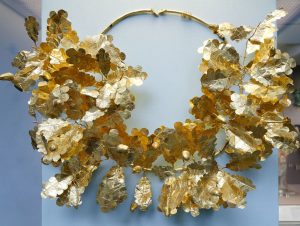
Hellenistic gold oak wreath
© Marie-Lan Nguyen / Wikimedia Commons
However, we have a second meaning for this crown tax. It is mentioned in the Codex Theodosianus, a fifth century Roman law code, but here the term refers to a tax that was collected by Jews for themselves and not for the emperor. The Codex states that this practice was to be discontinued and from now on, the monies will go to the imperial treasury (Codex Theodosianus 16:8:29)
It seems that the Romans allowed the Patriarch (נשיא) to collect a tax from Jewish communities in order to finance their activities. Messengers, called apostoli, were sent out to the Jewish world to collect this money and bring it back to the Nasi. The Romans allowed and even legislated this tax because it was in their interest to have a strong Patriarchate. The Nasi could control the Jews and ensure that they paid the imperial taxes. But once the Patriarchate was weakened and finally abolished in the fifth century, the Romans wanted the money for themselves.
Was this aurum coronarium an echo of the half shekel tax that all Jews paid to the Temple? We know that after the Temple was destroyed, the Romans instituted a “Jew tax,” fiscus judaicus, that “replaced” the half shekel, sending the money to Rome. Perhaps as relations between the Jews and the Romans improved somewhat, the Romans allowed the Nasi to collect money for Jewish purposes once again.
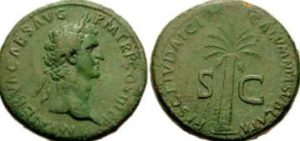
A coin from the Emperor Nerva relating to the fiscus judaicus
Cngcoins.com via Wikipedia Commons
Which aurum is the one discussed in Bava Batra? If it is the one for the Romans, then resentment and evasion make sense. But what if it was the one for the Nasi? That puts the conflict of Rabbi Judah the Prince and the people of Tiberias in a new light. He is saying that this tax should not be paid BY scholars, rather it is FOR the scholars.
Gold crowns may glitter but taxes are always painful.
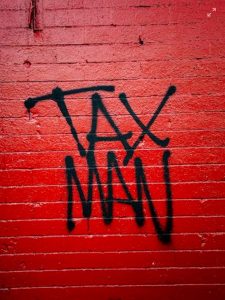
Jon Tyson, Unsplash




